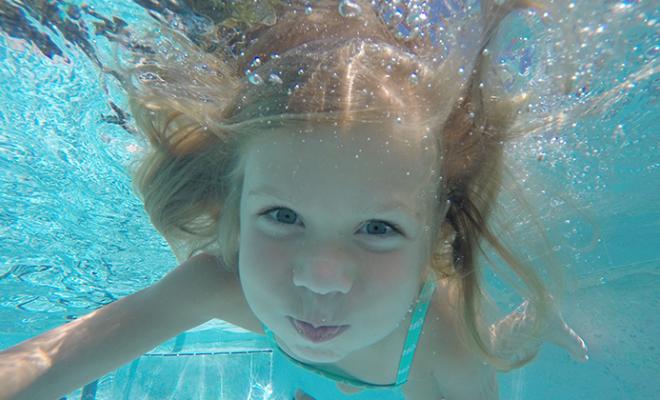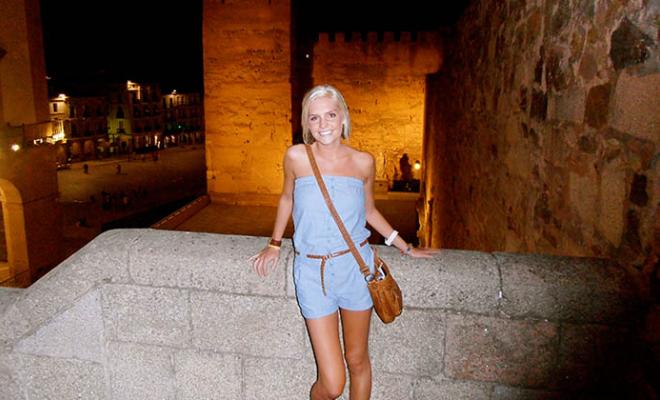I remember the first day my daughter looked at me and said she didn’t want to take her pills. It wasn’t out of defiance, but out of fear. She recently had a stomach bug and was afraid of gagging on her pills, which would then remind her of throwing up. And out of everything our bodies do, throwing up is one of those things you can’t really control. That feeling hits home. My daughter feels like she can’t control a lot of things about CF, regardless of how much we try to give her choices, encourage her, and help her stay on top of her medication and treatments. I wish I could say I handled that moment with her well, but I didn’t. I stressed us both out more, and I made the situation worse. I let myself jump off the anxiety cliff, and we both ended up in tears.
As her mom, I want to fix it, control it. The hardest part is staying present and connected to myself when my daughter is having a hard time. Every time my daughter felt out of control, stressed out, overwhelmed, helpless, and violated, I had to visit all those haunting places in myself. They can either pop up like old demons or old friends. I carry things from my past that affect my ability to show up for her. The thing about CF is that it flicks — and even amplifies — those old spaces in me.
It’s that predictable unpredictability of CF that heightens the lack of control and the feeling of helplessness as a caregiver. And if I see myself as a victim, my daughter will too. I have found that one of the most life-giving things I have to offer her is my own healing.
I had to learn that it is OK — even healthy — to have boundaries as a caregiver. Boundaries around how much I can carry emotionally and mentally for her. And to give myself the time and space to recognize those old places, acknowledge them when they show up, name them, and use them. I need to receive them as they come instead of closing myself off to them. The more I run from these feelings, the more they control me. I can learn to grow through the difficult times and receive the gifts I specifically need to grow into a more authentic version of myself. These might sound like good therapeutic words on a page. Implementing them is hard, hard work. Put some people in your corner. Find a good therapist. And prioritize resting and receiving.
Sometimes it’s the exhaustion that gets me. The sheer volume of medications my daughter must take, tracking them, ordering them, making sure she takes them. The endless sterilizing and organizing of nebulizers. The schedule we keep when she isn’t sick and then the schedule we keep when she is sick. And the endless amount of advocating — at school, with family, and at the hospital.
My husband and I learned early on if we could coordinate our schedules with work and other family commitments, it was worth the effort to swap out our visits to the hospital every 24 hours when our daughter is an inpatient. The fresh face and new energy we can provide when we have a night away from the hospital — and the smile on my daughter’s face when we come up with a new game in her hospital room — is well worth it. And if a one of us is not able to swap out, the same benefit could be said about finding ways to recharge ourselves in the hospital.
Setting realistic boundaries around what we can carry and what we can’t gives us the best opportunity to show up for our daughter. This also looks like teaching her about her medications and treatments, having her take an active role in her schedule and what her body needs because it empowers her and relieves some of the stress on us.
Sometimes it’s the grief that hits me. Knowing that her treatments may never actually end. Watching her navigate questions from other kids about her CF. Asking her to do another treatment when she’s exhausted, sick of doing them, or just wants to play. Seeing her use all her mental health tools just to curb her own anxiety, even for what seems like the small things. And accepting that my grief will always be on the continuum, cycling around, showing new faces and old faces.
I try not to hide from the anxiety, the exhaustion, and the grief anymore. They will always be there, but they don’t have to scream at me, pulling me away from what is truly important. I work to let these emotions connect me with myself so I can be there for my daughter when she needs me the most. I don’t have to carry all of her emotional challenges around CF. I try to live in the present, not worrying about what might happen or what we need to do next. Instead, enjoying the moments of catching minnows, climbing trees, petting a horse, and laughing at butterflies.
Interested in sharing your story? The CF Community Blog wants to hear from you.





